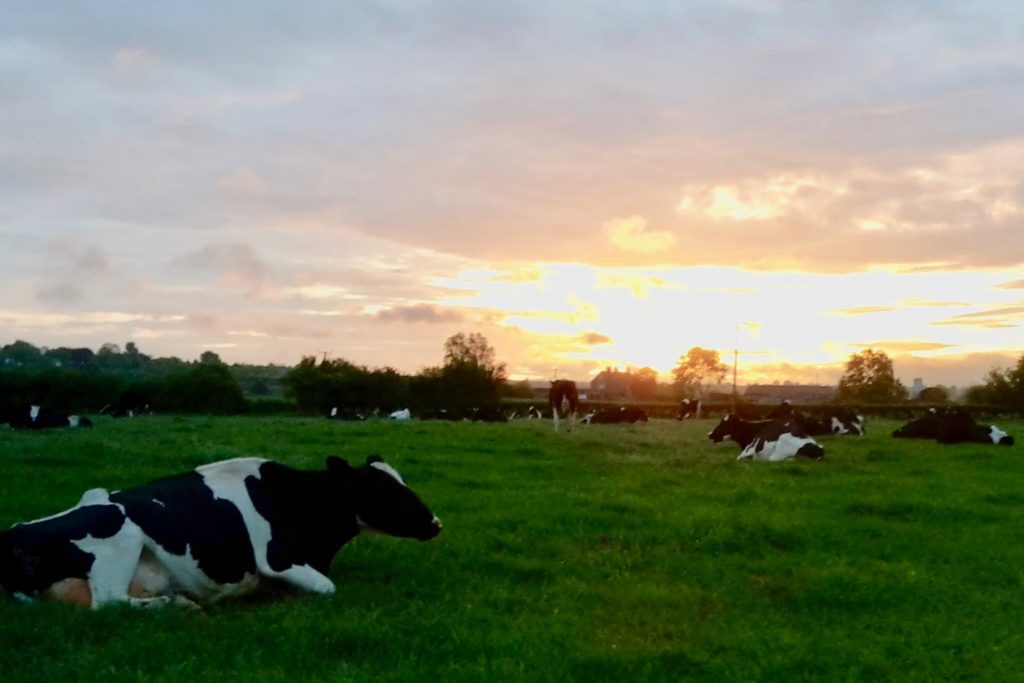At Hill End Farm we have been looking after the soil and the environment and engaging with the community for many years. This is now called Regenerative Farming.
We practise a 3 week grazing rotation, where the cows graze a field once or twice and then move on to another, so that there is a three week rest period for the grass to grow. This practice builds up deep, healthy roots and enriches the carbon in the soil.
We have very high carbon levels in the soil, with organic matter averaging up to 20 %. We have planted 1500 trees, 11 small woodlands and have a wildlife corridor running through the farm, alongside the brook. There are many ancient hedges, as we have not changed our field sizes, unlike most arable farms. There are also 4 ponds on the farm and our original farm reservoir which supports families of moorhens. Birdlife is abundant with many red list species.
We changed over to British Friesians from Dairy Shorthorns in 1910 when my great grandfather took on the farm tenancy – he was born at the original family farm, Vines Farm, Grittenham, the eldest of 6 children. Ever since, except for buying 24 pedigree heifers and a dairy bull in 1953, the farm has been closed on the female side. This means that we do not buy in any female cattle, but always breed our own. The cows seem to be stress free and very docile, some even letting my children ride on their backs!
We aim to get 50% of our milk from forage and graze as much of the year as possible. We are a pedigree herd with the Brinkworth prefix. Our adult cows are classified by the Holstein Society twice a year, and we have great results – up to 77% classified Very Good and Excellent. We keep all our female calves and some of the males go on to become pedigree breeding bulls. We also do a small amount of welfare friendly veal where the calves live in a straw barn and are suckled by the cows. There is one grazing beef animal a year with high Omega 3 levels for ourselves and our regular customers. Otherwise our male calves are sold to local farms in the village.
I give many talks to the community, like the Women’s Institute, Townwomen’s Guild and like to host school visits from our local school, though we would also like to bring in children from the towns to see our farm and where their food comes from. Here transport can be a problem, as coach hire is expensive.
We pride ourselves on the taste of our milk – it’s completely different from the milk you buy in the supermarket, has minimal food miles and you know where it comes from.
